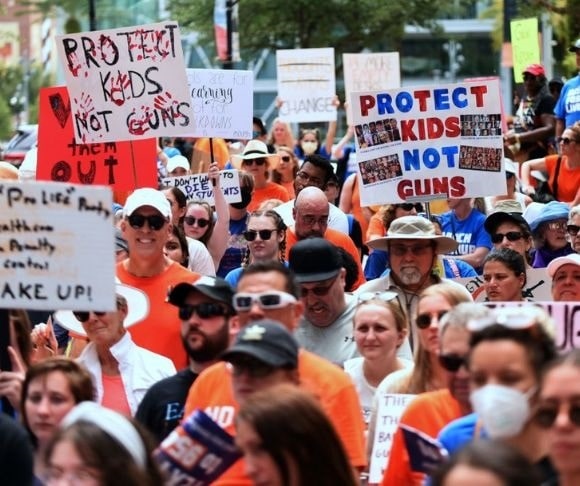A group of US senators – ten Democrats and ten Republicans – announced on June 12 that they had reached agreement on a package of measures supposedly aimed at reducing gun violence. Like so much legislation, though, the proposals – since no bill has been written yet – appear to give the two parties a little of what they want while falling short of what activists and advocates on both sides of the issue would have expected. Is this new gun control effort a monument to compromise, then, in the eyes of those who want to further restrict Second Amendment rights and also those who want to protect them?
The points agreed upon include enhancing the review process for firearms sales to persons under the age of 21. The measure falls short of what many Democrats and activists demanded, which was a total ban on gun purchases until 21. That is already the minimum age for buying handguns but not long guns – shotguns and rifles, including those described by the anti-gun lobby as “assault weapons.”
Additionally, grants would be provided to states for the implementation of highly controversial “red flag” laws, more mental health treatment, and to beef up school security. But, of course, none of the ideas agreed to address the issue of illegal guns or the fact that crimes are committed, obviously, by people who tend not to obey laws.
Wait and See
As always, the devil is in the details. What will the final text of the bill include? And what else might House Democrats want to add to it, should it pass the Senate? As the National Rifle Association (NRA) put it in a statement issued after the senators’ announcement, “As is our policy, the NRA does not take positions on ‘frameworks’. We will make our position known when the full text of the bill is available for review.” One unnamed GOP aide who was involved in the negotiations told Fox News, “This is an agreement on principles, not legislative text. The details will be critical for Republicans, particularly the firearms-related provisions. One or more of these principles could be dropped if the text is not agreed to.”
Leading the negotiations were Sens. John Cornyn (R-TX) and Chris Murphy (D-CT). The June 12 statement said, in part, “[O]ur plan saves lives while also protecting the constitutional rights of law-abiding Americans. We look forward to earning broad, bipartisan support and passing our commonsense proposal into law.”

(Photo by Paul Hennessy/Anadolu Agency via Getty Images)
All the right talking points were covered – all the right hot-button words used: “saves lives,” “law-abiding Americans,” “bipartisan support,” “commonsense.” Will it not be the case that people on both sides of the debate think they’ve heard this all before? For the gun-grabbers, these proposals appear, at first glance, to do little to prevent most Americans from continuing to buy and carry firearms. From the perspective of those who are fighting to protect gun rights, it’s more incremental chipping away at the Second Amendment with the consent of weak-willed Republicans.
Senate leaders on both sides, Chuck Schumer (D-NY) and Mitch McConnell (R-KY), are on board. With the apparent support of 10 GOP senators and, presumably, all 50 Democrats, the bill, once it is written, will have the votes to pass. What the House of Representatives does with it is up in the air. The Democrats may decide, for the sake of speed and to claim they did something about gun violence, to leave it largely unaltered in the hope of getting it to the Oval Office with a simple majority vote. On the other hand, they might see this as an opportunity to keep the issue alive and, having sensed weakness from Republicans, jockey for more anti-gun provisions.
Either way, both sides know at this point that these proposals will likely have a negligible effect on gun violence – because, among other things, there’s always the issue of how the states choose to spend the money. The statement released by the bipartisan Senate group also said, “Families are scared, and it is our duty to come together and get something done that will help restore their sense of safety and security in their communities.” Those words seem to evoke a 1986 quip from then-President Ronald Reagan: “The nine most terrifying words in the English language are: I’m from the Government, and I’m here to help.”




